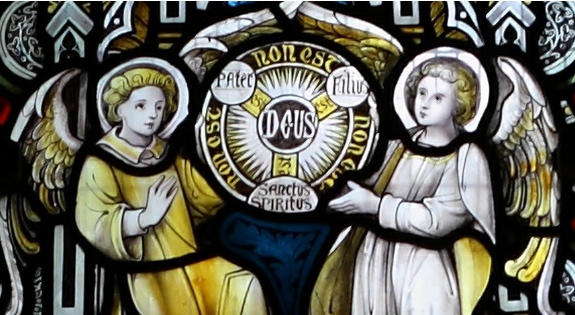
You’re probably aware that Biola’s Talbot School of Theology is starting an innovative new program, the M.A. Classical Theology. We are admitting students now, so if you are looking for a program that will take you to the heart of what theology is, take a look at it.
This M.A. is made up of three kinds of courses: books of the Bible, classic doctrines, and master theologians. I’m eager to teach all three kinds of courses, using a grad-school version of the socratic seminar pedagogy we use in the Torrey Honors Institute.
But right out of the gate, I’ll be doing a course on the doctrine of the Trinity. The course is mainly a set of classic readings, and here are the ones we’ll most likely be using. The four biggies are Nazianzus, Augustine, Aquinas, and Owen. But here are the details:
B. B. Warfield, “The Biblical Doctrine of the Trinity” (from the International Standard Bible Encyclopedia, 1915). For all the flaws of the article’s second half, I still use this piece because the first half is brilliant overview of the witness of Scripture.
Tertullian: Against Praxeas (ca. 165). If you could only read one pre-Nicene church father on the Trinity, who would you pick? My answer is Tertullian. He gets enough things right and enough things wrong that students can see with their own eyes the status of trinitarian theology in the early centuries.
Gregory of Nazianzus, The Five Theological Orations (379). Gregory’s five orations are unmatched for their clarity, forcefulness, and ability to stimulate doctrinal thinking.
Augustine, On the Trinity (ca. 420). We spend quite a bit of time on this very demanding text, looking into Augustine’s use of the biblical evidence and his terminological clarifications, and then his quest for images and likenesses of the Trinity.
John of Damascus, Book I of On the Orthodox Faith (ca. 740). Just the Trinity bits.
Thomas Aquinas, Summa Theologia, Treatise on the Blessed Trinity (Prima Pars, questions 27-43 (ca. 1270). Whereas Augustine had started with a question about the Father sending the Son to save us, and then led us through the whole territory of trinitarianism, Thomas’ starting point is the most fundamental and abstract question possible: whether there be procession in God.
John Owen, On Communion with God. (1657)
Karl Barth, “The Way of the Son of God into the Far Country” (1953). This is about fifty pages from Church Dogmatics IV:1, section 59, first sub-section.
Wolfhart Pannenberg, “The Trinitarian God” (1988). This is 77 pages (259-336) from his Systematic Theology volume I. Pannenberg does a great job incorporating the historical development into his doctrinal writing, which makes him the best anchorman for exploring the modern trends in trinitarian theology.
THAT is a class on the Trinity!